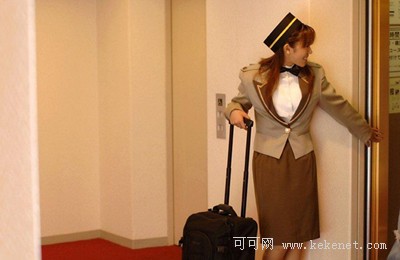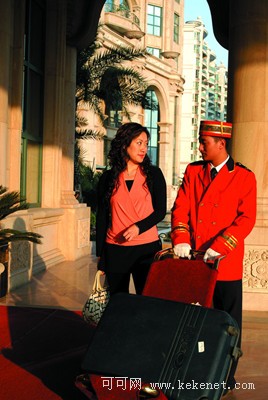


Hotel workers depend on tips to augment their usually small salaries. Rather than being annoyed at having to tip the doorman who greets you, consider it part of the cost of travel and be prepared with the dollar bills you will need to hand out before you even get to your room.
飯店的工作人員主要靠小費來增加他(她)們平時微薄的收入。不要對付給服務員小費感到憤憤不平,而應該把它看作是旅游消費的一部分,并應做好準備在進入飯店之前就隨時掏出鈔票。
Doormen
Depending on the amount of luggage, tip $ 1 to $ 2 to the doorman who takes your bags and turns them over to a bellman. If you are visiting and have no luggage, you naturally do not tip him for simply opening the door for you. Tip him again when you leave with your luggage as he takes it from the bellman and assists you in loading it in your car or into your taxi. When the doorman obtains a taxi for you, tip him $1 to $3 (the higher amount if he must stand in the rain for a period of time to get it).
門衛
給門衛的小費數目取決于行李的多少,為你拿行李并把它遞給行李員的門衛要付給1至2美元的小費。如果你沒有行李,通常就不必為他們只為你開門這樣簡單的服務付費。當你帶著行李準備離開飯店而門衛從行李員手中接過行李并幫你把它放入你的車子或出租車里時,你還應該付給他小費。當門衛為你叫了一輛出租車時,你應該付他1至3美元(如果他為了叫輛出租車而不得不在雨中站著時,你的小費應該給得更多些。)
adj. 惱怒的;煩悶的 v. 使煩惱;打擾(annoy











